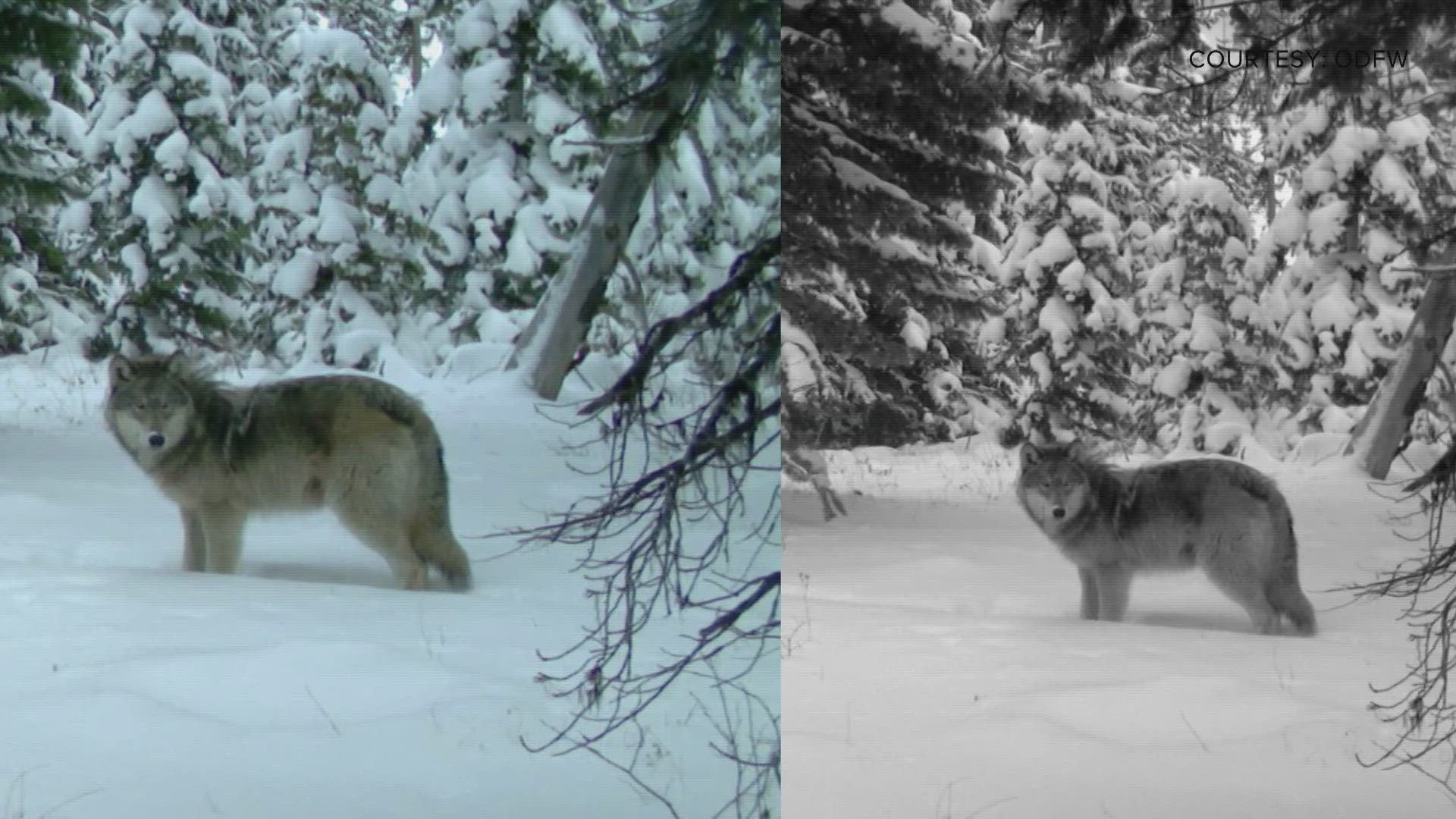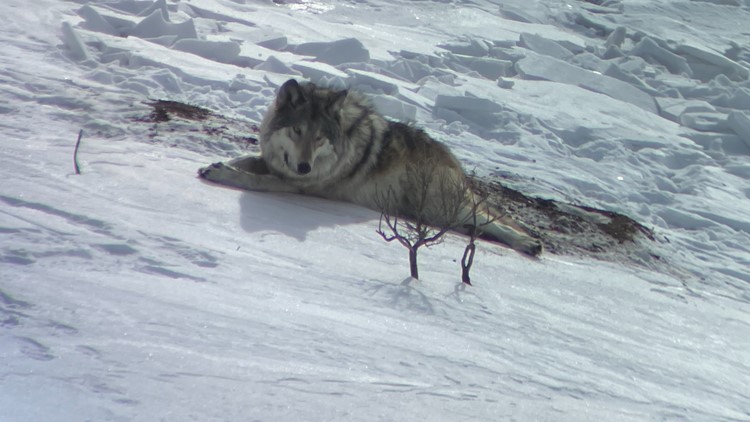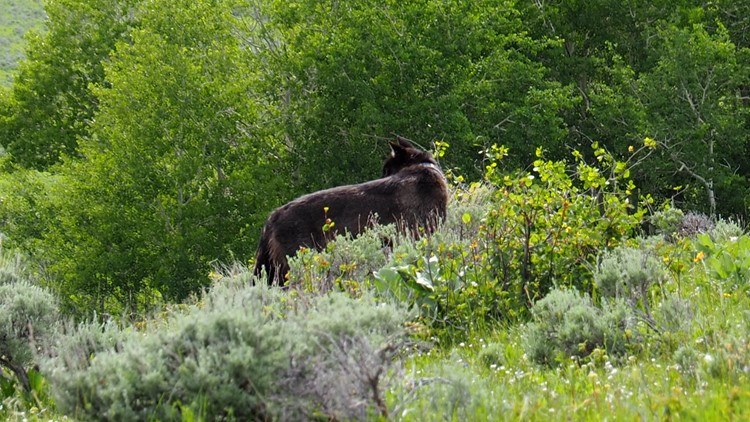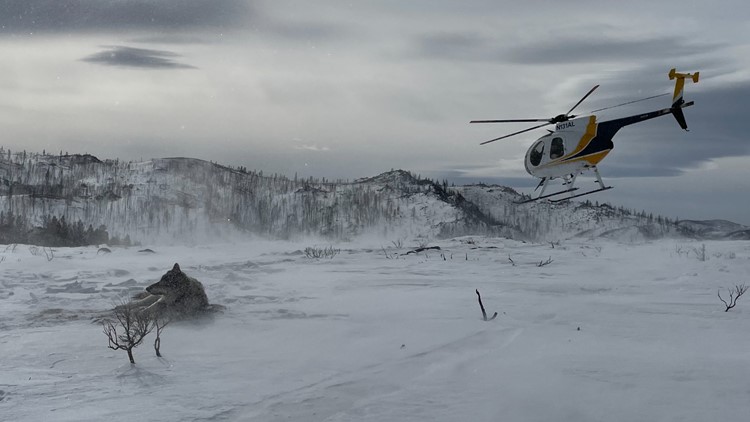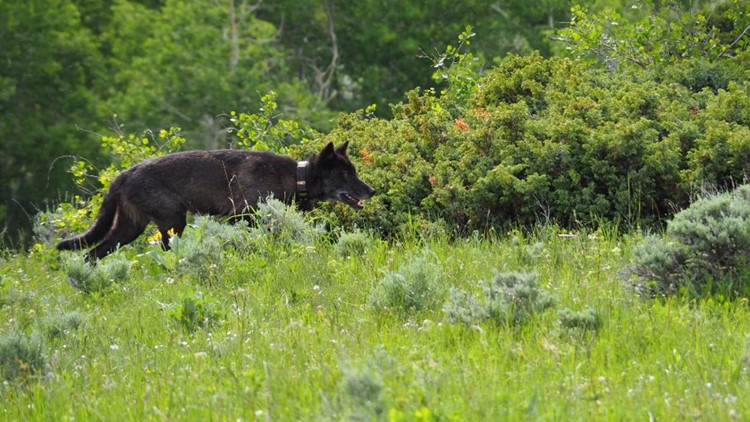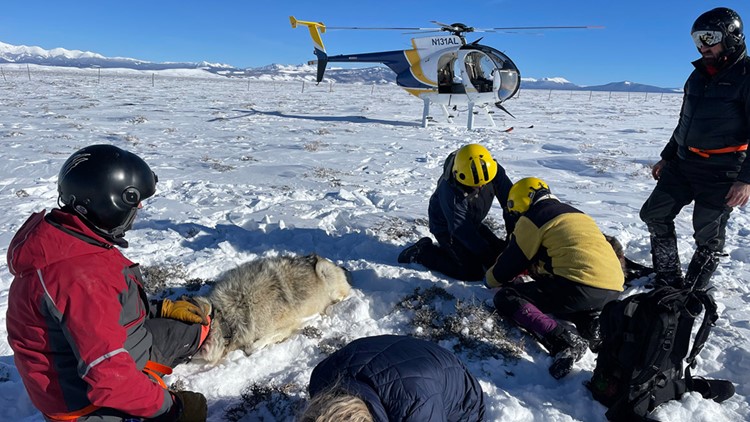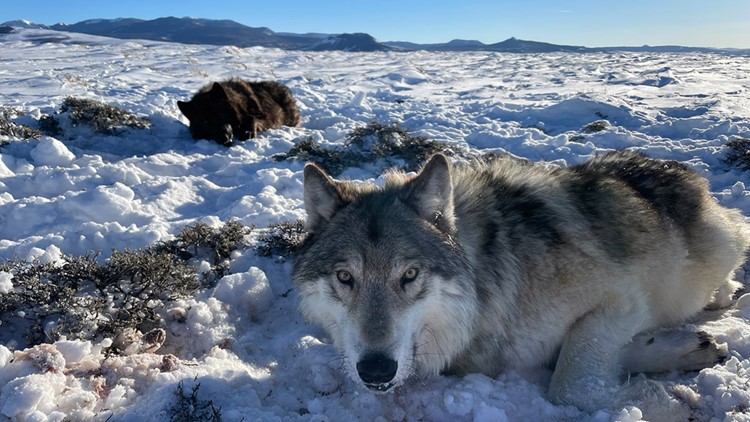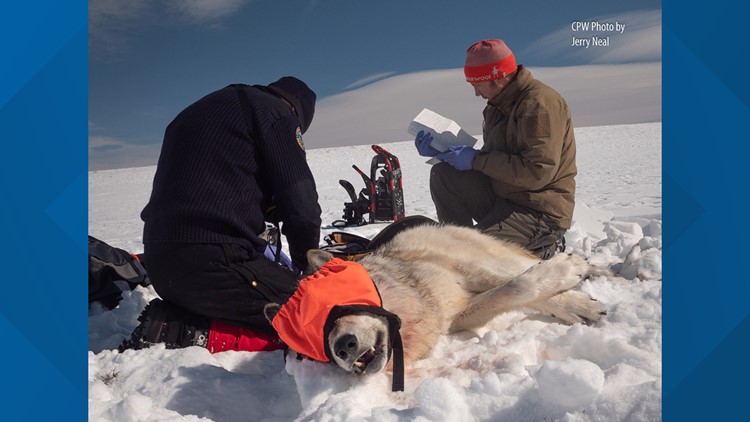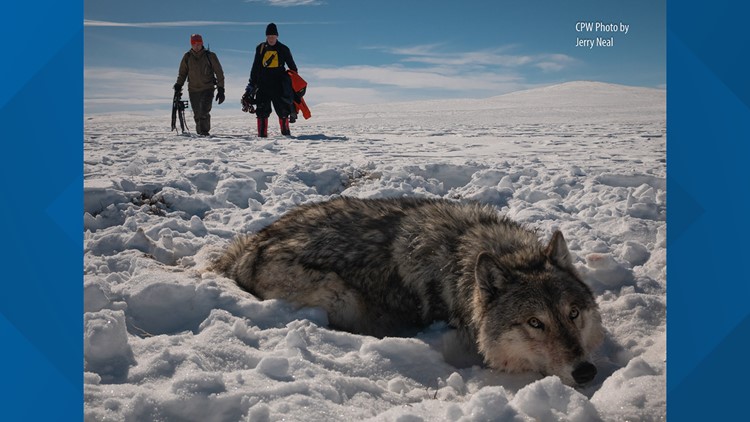FORT COLLINS, Colo. — About a dozen Colorado Parks and Wildlife employees are heading to Oregon to capture wolves and relocate them to Colorado, as voters decided in 2020.
Colorado Parks and Wildlife (CPW) must reintroduce wolves in the state before Dec. 31. Oregon is the only state, so far, to let Colorado take some of its wolves.
"It's terribly exciting. It's very cool," Eric Odell, CPW's Species Conservation Program Manager, told 9NEWS. "I think the whole agency recognizes that there's nothing we've taken on as an agency that's nearly as big and meaningful."
Odell's primary focus right now is on wolves, and he will be part of the group going to Oregon.
"It's a big honor to be part of this," he said.
OREGON AGREEMENT
CPW requested and Oregon granted Odell a Scientific Taking Permit (STP), which allows Colorado to take up to 10 wolves this year. Oregon granted the permit on Oct. 6.
CPW had to pay $121.50 for permits for this year and next. Oregon would not waive the fees, and 9NEWS learned why from a public records request.
"We don’t want to try and wring an additional $121.50 out of you but the purpose of the STP is to provide both agencies an extra level of coverage in case of a challenge. I wouldn’t want something as simple as a fee waiver to give grounds for a challenge," an Oregon Department of Fish and Wildlife official emailed Odell.
CAPTURE
The capturing will be up to CPW, but Oregon will help identify packs of wolves that could be best for relocating.
He hopes Colorado can get an even number of male and female wolves, but it's impossible to tell a wolf's sex from the air. If they had to have more of one sex, Odell said they would skew toward females.
CPW hopes for snow and cold temperatures.
"The snow is obviously helpful because we can track the animals. You can see where they've been," Odell explained. "Deeper snow is also good because it slows the animals down as they're being chased by helicopters. It's much easier to dart a slowed down animal."
CPW hired capture crews. They will use a plane to help spot wolves, and from a helicopter trappers will shoot darts at wolves to sedate them. After getting darted, the capture crews will inspect the wolves.
"A quick health check on the animals, make sure they have good legs, good feet, good eyes, good teeth, so they're healthy animals," said Odell.
Wolves in Jackson County
CPW will not take them if the animals fail that inspection, Odell added.
"Those animals are more likely to be more involved in depredation kinds of issues," he said.
After the initial inspection, they will take wolves to what Odell calls a processing station.
"Where we will weigh and measure, and collar those animals, collect genetic and blood samples, tissue and blood samples, crate those animals, and then fly them hopefully back to Colorado."
RELOCATING
CPW hopes to fly the animals back to Colorado. Odell said the wolves would be awake, and in covered crates during the flight. A nonprofit, Light Hawk Aviation, volunteered to fly the wolves back for CPW. An invoice 9NEWS received through a public record request listed this cost to be $15,000.
“If for whatever reason that (flying) doesn’t work. We have backup plans where we can drive animals back in trailers, crated in trailers," said Odell.
RELEASE
Odell said wolves will be released in Summit, Eagle, and Grand Counties this year. The state will not say exactly where it releases them, but Odell also said they don't expect wolves to stay where they get released.
Once the wolves get to the release sites, that's it.
"The crates will be opened and the animals will be off on their own,” said Odell.
He expects CPW to continue looking for wolves in Oregon through the winter and into next year.
"If we get a couple animals before Dec. 31, that will take off a lot of stress," he said.
Odell added CPW is not just trying to do the minimum and get wolves into Colorado.
“There’s a big effort to do this meaningfully. We’re not trying to do the bare minimum of this. We really want this to be a successful program," he said.

